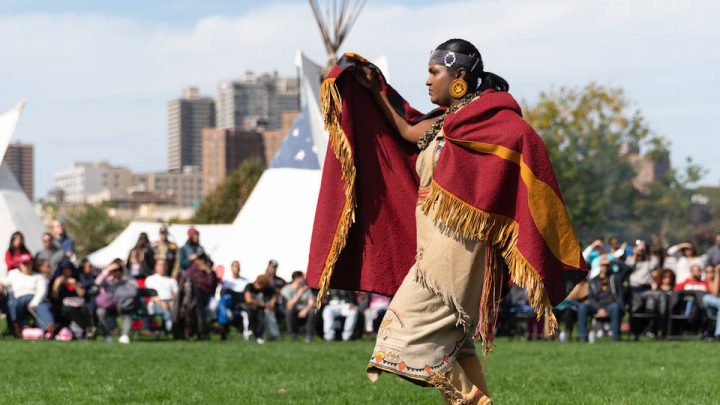The global biodiversity framework to save nature must respect, promote and support the rights of Indigenous Peoples and Local Communities if it stands any chance of succeeding. In this press briefing at the opening of COP15, members of the International Indigenous Forum on Biodiversity (IIFB) will discuss the position of Indigenous Peoples and Local Communities on the Global Biodiversity Framework.
“As global citizens, we are all part of, and not separate from, nature,” said Lakpa Nuri Sherpa, one of the Co-Chairs of the IIFB, and programme lead at AIPP (Asia), speaking at the opening of UN Biodiversity’s COP15.
“As Indigenous Peoples, we have been custodians of our lands, territories and waters for millennia and have deep interaction with the ecosystems where we live. Evidence shows our lands are among the most biodiverse on the planet,” he Lakpa Nuri Sherpa.
For example, a recent IPBES sustainability report released in 2022, found that policies supporting secure tenure rights for indigenous peoples, and equitable access to land, fisheries and forests, as well as poverty alleviation, create enabling conditions for sustainable use of wild species.
“Only by recognizing the rights, knowledge, innovations, and values of Indigenous Peoples and Local Communities will we be able to push forward the global agenda to sustainably use and conserve biodiversity,” said Nuri.
This is a crucial year as the aim of COP15 is to finalise and adopt the Post-2020 Global Biodiversity Framework (GBF), which will set the global targets for living in harmony with nature and mitigating biodiversity loss.
Ramiro Batzin, co-chair of the IIFB, and representing Latin America, said “by respecting the territoriality of Indigenous Peoples, respecting our knowledge and our contributions, the Global Biodiversity Framework – including targets to ensure humanity lives in harmony with nature – will succeed!”
The implementation of the framework to save nature should follow a human rights-based approach respecting, protecting and fulfilling these rights, and particularly indigenous and collective rights, and gender equity.
“A human rights-based approach is crucial to a successful Global Biodiversity Framework,” said Lucy Mulenkei, Co-Chair of the IIFB, Africa. “Recognition and respect of the rights of the communities is crucial.”
“Such an approach would mean that biodiversity policies, governance and management do not violate human rights, and those implementing such policies should actively seek ways to support and promote human rights in their design and implementation,” she said.
In their opening statement to COP15, IIFB states that the implementation of the global biodiversity framework must be based on scientific and other evidence, recognizing the role of science, technology and innovation and that of other knowledge and innovation systems including traditional knowledge, practices, and technologies, while respecting the principles of free, prior and informed consent.
Yukon Regional Chief Kluane Adamek, head of the delegation from the Assembly of First Nations in Canada said, “We are part of the land and part of the water. Indigenous Peoples must be the ones to guide us forward in protecting, conserving, and stewarding our environment.”
She added, “First Nations women, who play a sacred role in their communities as caretakers of life on water and Mother Earth, matriarchs preserve and pass down critical knowledge about our natural world, and its protocols. Indigenous ways of knowing and being are essential to addressing biodiversity loss and must be recognized and protected.”
“Indigenous Peoples’ values and knowledge provide insights for reciprocal human-nature relationships amidst the crisis of biodiversity loss and climate change,” said Joji Carino, Philippines (Forest Peoples Programme / Indigenous and Local Knowledge Centres of Distinction / Member of IIFBES caucus), speaking at the meetings.
“Biodiversity needs the voices of Indigenous Peoples,” said Carino.
“Putting the cultures and rights of IPLCs at the heart of the Global Biodiversity Framework would deliver sustainable livelihoods and wellbeing, and positive outcomes for biodiversity and climate,” she said.










